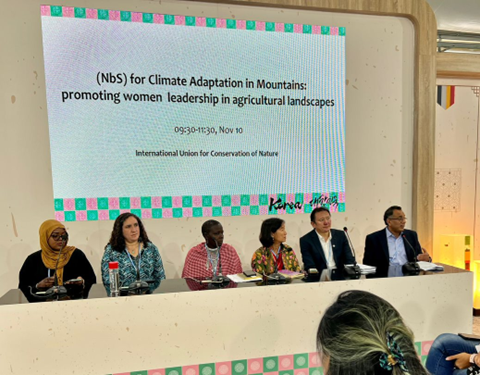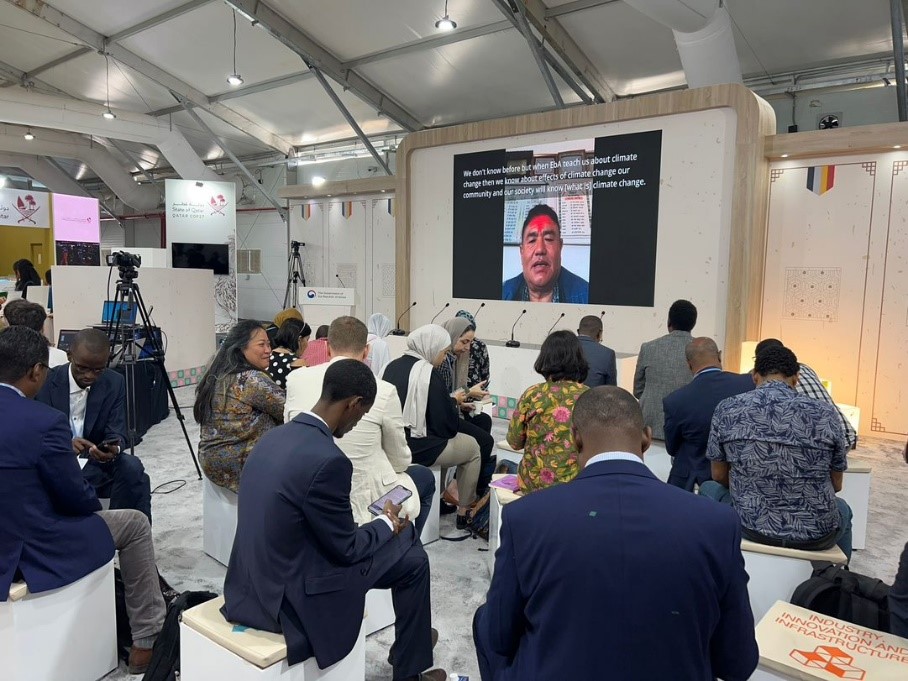IUCN’s event at the Korean Pavilion made the case of how Nature-based Solutions (NbS) underpins climate resilience in mountain ecosystems, while emphasizing the critical role women leadership plays in building climate adaptation and natural resource management strategies. It presented success stories from five different countries in Africa, Asia and Latin America and heard from the local leaders, Indigenous communities and global policy experts showcasing the significance of NbS in the Year of Sustainable Mountain Development. The event highlighted the gender disparities prevalent in mountain communities, showcased the benefits of addressing these disparities and building women leadership in mountain communities and shared experiences working with women in local communities to promote water, food and resource security.
The event hosted the following panelists:
- Ms. Hyoeun Jenny KIM, Ambassador & Deputy Minister for Climate Change Ministry of Foreign Affairs, Republic of Korea
- Dr. Pasang Dolma Sherpa, Executive Director of the Center for Indigenous Peoples’s Research and Development (CIPRED) Nepal and Chair of Specialist Group on Indigenous Peoples’ Customary and Environmental Laws and Human Rights (SPICEH) within CEESP-IUCN
- Nema Michael, Ujamaa Community Resource Team (UCRT), Tanzania
- Mirella Gallardo, Co-Director of Association Mountain Institute, Peru
- Sonam Tobgay, Chief Forestry Officer, Forest Resources Management Division, Department of Forest & Park Services Ministry of Agriculture & Forests, Royal Government of Bhutan
- Mana Omar, Youth Representative for the Feminist Action for Climate Justice Action Coalition under Generation Equality Forum, Kenya
- Dr German Velasquez, Director (Mitigation and Adaptation), Green Climate Fund
- Ali Raza Rizvi, Climate Change Team Head, and Adriana Vidal, Senior Policy Advisor, Climate Change from the International Union for Conservation of Nature moderated and presented the Scaling Up Mountain EbA project, respectively



